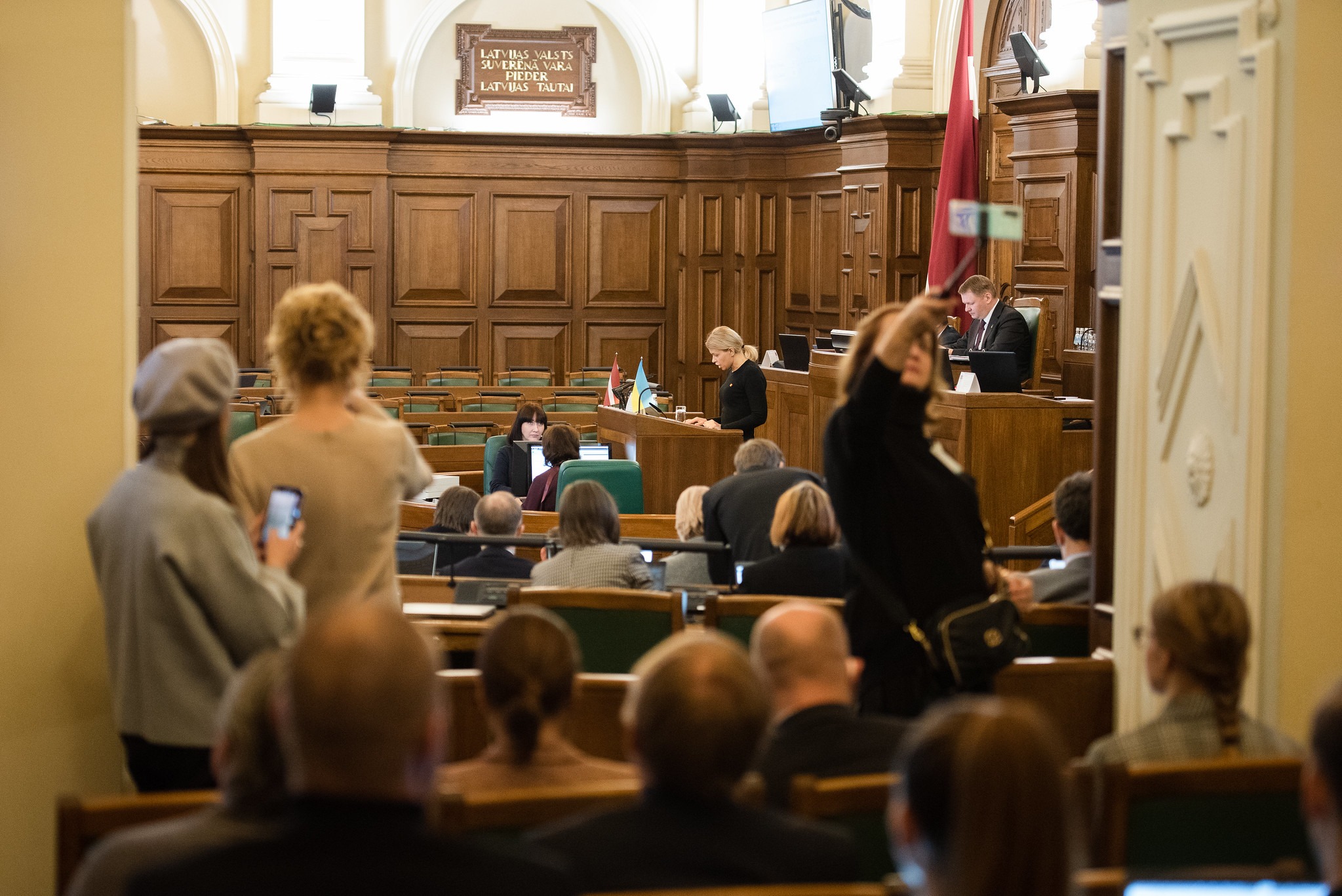Report
Estonia Weekly: Satirical “Olivier Salad Ban” Rumour Fuels Russophobia
Pro-Kremlin online voices in Estonia amplified both fabricated claims about cultural repression and criticism of long queues at the Narva border, framing these measures as evidence of “Russophobia.”
Weekly Reports
Estonia Weekly: Debate Over Expanding Surveillance Infrastructure
Pro-Kremlin commentators on social media have criticised the Estonian government for expanding surveillance infrastructure to disrupt dialogue and spread conspiracy theories. A heated debate has erupted over the use of Russian in medical institutions, sparking a backlash on social media and potential Kremlin propaganda.
Read moreLithuania Weekly: Protest Against the Planned Real Estate Tax
This past week, Kremlin-aligned outlets seized on a protest in Vilnius against the proposed real estate tax, using it as a platform for conspiracy theories and anti-government rhetoric. Alongside slogans portraying the tax as an attack on ordinary citizens, commentary amplified the coincidental timing of a fire at a nearby waste facility, suggesting it was a deliberate attempt to suppress protest turnout. The tax itself was framed as a corrupt scheme by political elites, furthering narratives aimed at eroding trust in Lithuania’s leadership and democratic institutions.
Read moreLatvia Weekly: Weaponizing Identity and Language
Pro-Kremlin Telegram accounts in Latvia push narratives that undermine Latvian sovereignty by portraying it as a Western puppet state with decadent values while glorifying the Russian imperial period. These accounts, including political candidate Roslikovs from the Stability party, also amplify claims of anti-Russian discrimination in Latvia, particularly around language rights, while promoting anti-government sentiment by portraying Latvian authorities as corrupt and exploitative.
Read moreEstonia Weekly: Status of the Orthodox Church Fuels Debate on Discrimination
Estonia’s president has decided not to make changes to the law on churches and congregations, but pro-Kremlin social media groups say the decision is for show. Estonia’s plans to build a military base in Narva have sparked criticism by pro-Kremlin commentators accusing the government of provoking Russia.
Read moreLatvia Weekly: How Outrage Is Fueling a Populist Surge
The previously fringe Union of New Latvians party is now polling to pass the 5% threshold for Riga’s city council. Its leaders Glorija Grevcova and Rūdolfs Brēmanis are generating social media engagement through content which can be described as “outrage porn.” They are stirring up outrage in their audience using charged and even fake topics to provoke strong emotional reactions. Guess the populist political party which gained the most engagements for its posts on Facebook, TikTok and Telegram? It was not Roslikovs, the leader of Stability! party. It was not Ainārs Šlesers, Trump-like leader of Latvia First party. It was Glorija Grevcova and Rūdolfs Brēmanis from the Union New Latvians.
Read moreEstonia Weekly: Concerns Over Russian Propaganda and Youth Indoctrination
Estonian Internal Security Service accused blogger Oleg Besedin of spreading Russian propaganda on his YouTube channel, sparking a strong reaction on social media. Besedin claimed he gives a voice to the ignored, accusing Estonia of violating freedom of expression. Russia is using cultural and educational programmes at the Artek camp in Russian-occupied Crimea to promote pro-Russian sentiments among Estonian children, turning the camp into a centre for militarising children and spreading Russian propaganda.
Read moreLithuania Weekly: Silence After Tragedy Fuels New Conspiracy Theories
This week, Kremlin-aligned media escalated narratives around the Pabradė incident, accusing Lithuanian authorities of secrecy and mismanagement. Alongside renewed conspiracy theories, the government faced intensified criticism over defence policies, economic reforms, and institutional trust, with malign sources aiming to erode public confidence and amplify societal discontent.
Read moreLatvia Weekly: Russophobia, Decline, and Delusion – Narratives Fuel Division
Over the last week, monitored social media portrayed Latvia as Russophobic, tying this narrative together with claims of Latvia as an economic failure and dismissing the country’s concerns about potential Russian aggression.
Read moreEstonia Weekly: Seizure of Sanctioned Tanker Sparks Kremlin Backlash
Estonia’s navy has seized the Kiwala, a flagless oil tanker linked to Russia’s ‘shadow fleet’, in its first direct seizure in the Baltic Sea, despite accusations from pro-Kremlin commentators that it was overstepping its capabilities and potentially provoking inter-state tensions. Pro-Kremlin social media users also accuse the Estonian authorities of public Russophobia and violating the rights of the Russian-speaking minority.
Read moreShowing 91 to 99 of 334 results
Don’t miss a story.
We publish stories that change laws, lives, minds and the world. Subscribe to our newsletter to get our investigations delivered to your inbox.








